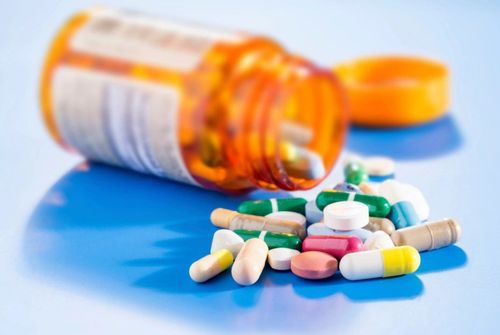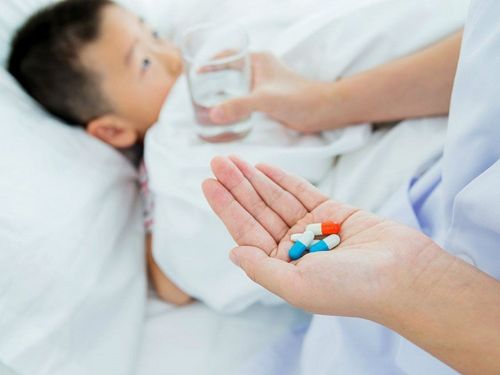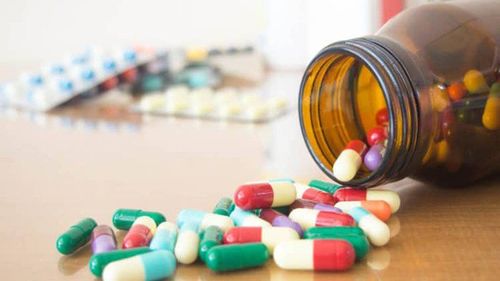This is an automatically translated article.
Using antibiotics correctly in children will respond to the treatment of the disease. However, the current overuse of antibiotics in children makes bacterial strains resistant to antibiotics. Children may respond well to antibiotics the first time they use the drug, but the next time they use it, they will become resistant to the drug because the bacteria have mutated.
1. What are antibiotics?
An antibiotic is a drug that inhibits or destroys the growth of bacteria and reduces the inflammation caused by the bacteria. However, antibiotics have different effects on different types of bacteria. If a drug is effective against many strains of bacteria, it is a broad-spectrum antibiotic, while a drug that responds only to certain strains of bacteria is called a narrow-spectrum antibiotic.
In the body, there are some types of bacteria that are not harmful but also participate in the metabolism and protect the body from pathogenic bacteria. However, if the bacteria cause some diseases for children such as: Sinusitis, bacterial infection, meningitis, ... then the use of antibiotics is necessary. As for diseases such as flu, cough, bronchitis ... often caused by viruses, the use of antibiotics will not be necessary because it is not effective.
2. Consequences of antibiotic abuse in children
Using antibiotics for children in accordance with the regimen will help the child's body maintain the effectiveness of the current antibiotic. At the same time, it can also protect children from infections, antibiotic resistance as well as prevent some of the side effects of overusing antibiotics for children.
However, currently, the abuse of antibiotics in children is increasing, making treatment in the health sector difficult and the children's health seriously affected. Even when the doctor prescribes antibiotics, many parents arbitrarily change the dose of the drug and when the child's condition gets better, they voluntarily stop the antibiotic.
But doing this is extremely dangerous because antibiotics need to be used in sufficient doses to work. Therefore, doctors often prescribe antibiotics for 7-10 days to maximize the effects of the drug as well as limit side effects and antibiotic resistance. If you do not follow the doctor's instructions, the effects of antibiotic abuse on young children can have some consequences as follows:
Abuse of antibiotics in children leads to antibiotic resistance This is the effect of the most dangerous antibiotic abuse. Antibiotic resistance, also known as antibiotic resistance, is a condition in which bacteria become resistant to the effectiveness of antibiotics. Specifically, the bacteria will change, reduce some or eliminate the effectiveness of antibiotics used to treat diseases.
If after antibiotic treatment, the surviving bacteria will be able to multiply, and at the same time it will pass on the properties to the next generations. Such characteristics could be drug resistance, leading to an increasing number of strains of bacteria that are resistant to antibiotics. The consequences of antibiotic resistance include worsening of the disease and frequent recurrence, longer recovery time, higher treatment methods and costs, especially when there is no effective treatment. will affect the life of the child.
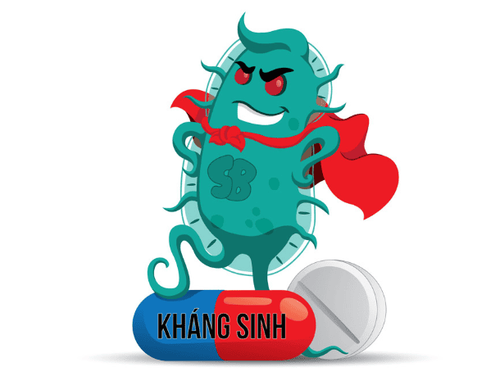
Lạm dụng kháng sinh ở trẻ em dẫn đến kháng kháng sinh
Overuse of antibiotics in children leads to intestinal dysbacteriosis. Antibiotics have the main effect of killing bacteria. However, harmful bacteria and beneficial bacteria for the child's body are destroyed if children use high doses for a long time or use antibiotics indiscriminately. Therefore, the beneficial bacteria in the intestines have been destroyed, so children are prone to intestinal disorders, diarrhea, nausea or rashes...
Abuse of antibiotics in children leads to liver and kidney damage. One of the effects of antibiotic abuse in children is damage to the liver and kidneys. When using some antibiotics for children will damage the liver, kidneys... Therefore, abusing antibiotics in children is very dangerous.
3. How to limit antibiotic abuse in children? With the consequences of overusing antibiotics for children as above, to limit this situation, parents need to take the following measures when using antibiotics for children to limit antibiotic resistance as well as some side effects of the drug. Specifically:
Do not give antibiotics to children unless absolutely necessary: If the child has illnesses such as colds, flu, viral fever, upper respiratory infections or some cases of bronchitis, nasopharyngitis is mild but children are still playing, eating normally, no symptoms of worsening... it is not necessary to rush to use antibiotics for children. Instead, parents should reduce the child's fever if the child has a fever, increase water intake and feed the child with nutritious foods to increase resistance... After 1 week, the child does not show better symptoms and is sick. If it gradually gets worse, it is necessary to take the child to the hospital for a doctor to examine and prescribe appropriate medicine, do not arbitrarily use antibiotics at home for the child. Using antibiotics for children with the right disease, in the right way: When children are required to use antibiotics, parents need to strictly follow the doctor's instructions on the time, dose as well as the combination of antibiotics with other antibiotics. common foods and drinks... so that the drugs can take full advantage of their effects, so that bacteria have no chance to become resistant to antibiotics. Strengthening the immune system for children: The immune system is considered the factor that the body uses to fight against pathogens such as bacteria and viruses. A healthy child's immune system will be a protective barrier to help them prevent and limit infections. Parents should strengthen their children's immune system regularly by supplementing with adequate nutrition, doing physical exercise with daily fun activities, and receiving adequate and timely preventive vaccinations...
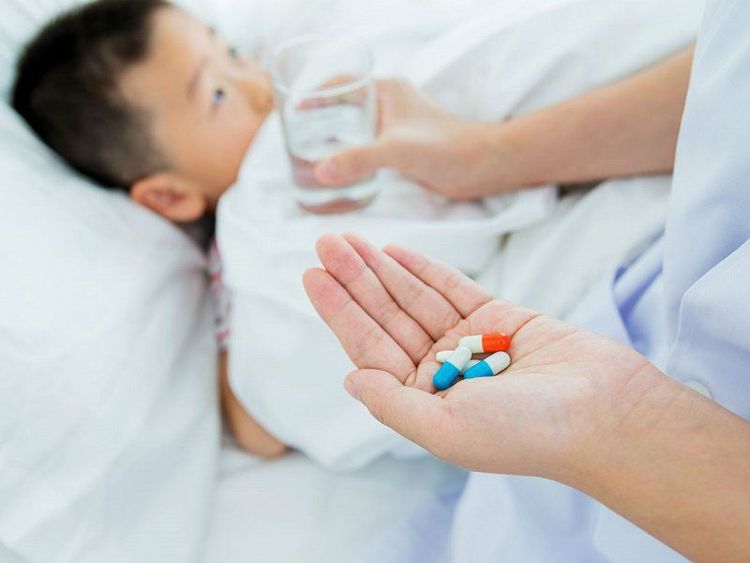
Nên sử dụng kháng sinh cho trẻ em đúng bệnh, đúng cách
To ensure the safe use of drugs for children and prevent antibiotic resistance, parents need to take their children to the hospital to be examined by a specialist and have a specific treatment plan. The pediatric department at Vinmec International General Hospital is the address for receiving and examining diseases that infants and young children are susceptible to: viral fever, bacterial fever, otitis media, pneumonia in children ,... With a system of modern facilities, medical equipment, sterile space, minimizing the impact as well as the risk of disease spread, Vinmec will bring satisfaction to customers. and is highly appreciated by industry experts with:
Gathering a team of leading pediatricians: Including leading experts with high professional qualifications (professors, associate professors, doctors, Master's degree), experienced, worked in big hospitals like Bach Mai, 108.. The doctors are all well-trained, professional, have a heart - reach, understand young psychology. In addition to domestic pediatric specialists, the Department of Pediatrics also has the participation of foreign experts (Japan, Singapore, Australia, USA) who are always pioneers in applying the latest and most effective treatment regimens. . Comprehensive services: In the field of Pediatrics, Vinmec provides a series of continuous medical examination and treatment services from Newborn to Pediatric and Vaccine,... according to international standards to help parents take care of their baby's health from birth to childhood. Advanced techniques: Vinmec has successfully deployed many specialized techniques to make the treatment of difficult diseases in pediatrics more effective: neurosurgery - skull surgery, stem cell transplantation. blood in cancer treatment. Professional care: In addition to understanding children's psychology, Vinmec also pays special attention to the children's play space, helping them to play comfortably and get used to the hospital's environment, cooperate in treatment, improve the efficiency of medical treatment.
Please dial HOTLINE for more information or register for an appointment HERE. Download MyVinmec app to make appointments faster and to manage your bookings easily.





